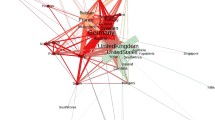Abstract
Heritage is seldom written specifically into the cultural policy documents behind national film and television production in Europe. However, historical film and television play a crucial role in European film cultures, and clearly have very high audience figures. A historical TV drama like ITV’s Downton Abbey (2010–15) enjoyed around ten million viewers on average in the UK, and has been distributed to more than 220 territories globally. Danish historical TV drama often has a national share of between 60 per cent and 80 per cent, equal to an audience of between 1.5 and 2.5 million (of a population of 5.5 million), and the recent Danish historical drama 1864 (2014) has been sold to more than 60 countries. So, national historical productions clearly capture the national imagination and frame understandings of the past. At the same time, they often also speak to a transnational audience and are based on co-production and transnational support mechanisms. Thus, the international production of historical dramas and the success of such series tell us that the most popular national history and heritage also has a universal and transnational dimension. Within the context of this present volume, it is particularly interesting to see how this transnational dimension can interact with the efforts of key European institutions to make concrete notions of a collective European heritage.
Access this chapter
Tax calculation will be finalised at checkout
Purchases are for personal use only
Similar content being viewed by others
Works Cited
Agger, G. 2014. Kampen om vores 1864. Kommunikationsforum, 28/10.
Anderson, B. 1983. Imagined communities. Reflections on the origin and spread of nationalism. London: Verso.
Astrupgaard, C., Lai, S. and Larsen, F. (2016). 1864 på DR’s digitale hjemmebane. In Hansen, K. T. ed. 2016. 1864. TV-serien, historien, kritikken. Aalborg: Aalborg Universitetsforlag, p. 283-306.
BFI. 2012. Film forever. Supporting UK film. BFI plan 2012–17. London: British Film Institute.
Bjørnlund, F. 2014. Jeg er ked af borgerkrigen. Ekko, 14/10.
Bondebjerg, I. 1993. Elektroniske fiktioner. TV som fortællende medie. København: Borgen.
COE. 1954. European cultural convention. Paris: COE.
———. 1985. On European cultural identity. Brussels: COE.
———. 2005a. Convention on the value of cultural heritage for society. Brussels: COE.
———. 2005b. 50 years of the European cultural convention. Brussels: COE.
COM. 2007. 242 final. Brussels: COE.
de Pool, I.S. 1977. The changing flow of television. Journal of Communication 27(2): 139–149.
Dhoest, A. 2007. Identifying with the nation. Viewers memoirs of Flemish TV fiction. Journal of European Cultural Studies 10(1): 55–73.
Eder, K. 2005. Remembering national memories together: The formation of a transnational identity in Europe. In Collective memory and European identity, ed. K. Eder and W. Spohn, 197–220. Farnham: Asghate Publishing.
Eder, K., and W. Spohn, (eds.). 2005. Collective memory and European identity. Farnham: Ashgate Publishing.
EEC. 1957. Treaty of Rome. Brussels: EEC.
Eising, J. 2014. Anmelder sukker over Badehotellet: 2 stjerner. Jyske Vestkysten 10(2).
EU Commission. 2007. On a European agenda for culture in a global world. Brussels: Commission of the European Union.
Fligstein, N. 2008. Euro-clash. The EU, European identity and the future of Europe. Oxford: Oxford University Press.
Hansen, K. T. ed. 2016. 1864. TV-serien, historien, kritikken. Aalborg: Aalborg Universitetsforlag.
Jensen, C. 2014. 1864. Ekko, 12/10.
Ladegaard, Claus. 1993. Mærk historien. om receptionen af en historisk tv-serie. In Når Medierne spinder historiens tråd, ed. C. Ladegaard. København: Akademisk Forlag.
Lidegaard, B. 2014. 1864. sluttede i 2001. Politiken, 13/10.
Lindberg, K. 2014a. Politikere på kant med armslængdeprincippet. Berlingske, 21/10.
——— 2014b. DF kræver historiker-tjek af DRs serier. Berlingske, 19/10.
Monk, C. 2011. Heritage film audiences: Period film and contemporary audiences in the UK.
Palle, H. 2014. Tv-dramaet 1864 er forrygende flot og velfortalt. Politiken, 12/10.
Rasmussen, A. B. 2014. Den krigsførende nation skal stå (skole)ret. In Information, October 13.
Risse, T. 2010. A community of Europeans. Transnational identities and public spheres. Ithaca: Cornell University Press.
Rosenstone, R.A. 2006. History on film/film on history. Harlow: Pearson and Longman.
Sassatelli, M. 2009. Becoming Europeans. Cultural identity and cultural politics. Basingstoke: Palgrave Macmillan.
Seeberg, K. 2014. Ole Bornedal i opgør med Pia K: Jo, der var sigøjnere i 1864. BT, 14/10.
Spohn, W. 2005. National Identities and Collective Memory in an Enlarged Europe. In Eder, K. and Spohn, W. eds. 2005. Collective Memory and European Identity. Farnham: Ashgate Publishing. p. 1-14.
van Dijck, José. 2007. Mediated memories in the digital age. Stanford: Stanford University Press.
Weiss, P. 2014. Dyresex ved Dannevirke. Jyllands-Posten, 22/10.
Zerubavel, Eviatar. 1997. Social mindscapes. An invitation to cognitive sociology. Cambridge, MA: Harvard University Press.
Author information
Authors and Affiliations
Corresponding author
Editor information
Editors and Affiliations
Copyright information
© 2016 The Author(s)
About this chapter
Cite this chapter
Bondebjerg, I. (2016). The Politics and Sociology of Screening the Past: A National and Transnational Perspective. In: Cooke, P., Stone, R. (eds) Screening European Heritage. Palgrave European Film and Media Studies. Palgrave Macmillan, London. https://doi.org/10.1057/978-1-137-52280-1_1
Download citation
DOI: https://doi.org/10.1057/978-1-137-52280-1_1
Published:
Publisher Name: Palgrave Macmillan, London
Print ISBN: 978-1-137-52279-5
Online ISBN: 978-1-137-52280-1
eBook Packages: Literature, Cultural and Media StudiesLiterature, Cultural and Media Studies (R0)




